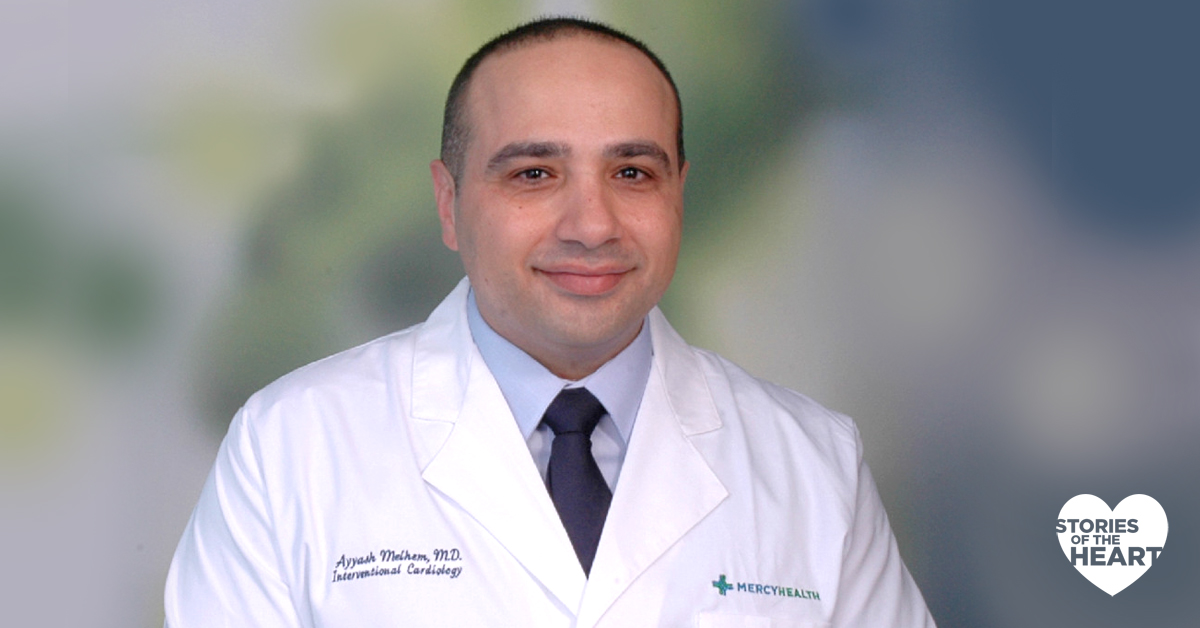You are what you eat — keep your heart healthy with these six heart-healthy foods.
Eating a balanced diet is one of the best ways to improve your heart health. Lower your risk for heart disease, stroke and high cholesterol with these six foods that are good for your heart.
Blueberries
This antioxidant-rich superfood tops the list for heart health. Our bodies often can’t produce as many antioxidants as we need. By helping neutralize harmful byproducts of metabolism called free radicals, antioxidants help reduce problems with our hearts, eyes, memories and immune systems. Blueberries are also a great source of vitamin K and C, manganese, fiber and copper. Whether fresh, frozen or dried, aim for one cup of blueberries a day. Blackberries, black raspberries, black currants and red grapes offer similar benefits.
Avocado
Avocados are one of the best heart-healthy foods for your diet. Adding avocado to your sandwich or salad provides a healthy dose of monosaturated fat, which helps lower LDL levels and raise HDL cholesterol. The majority of the fat in avocado is oleic acid, which is also the main fat source of olive oil. Oleic acid has been linked to reducing inflammation and blood pressure as well as helping with weight loss. Read more about heart-healthy fats here.
Yogurt
Research conducted with more than 1,000 adults found that those who consumed yogurt and yogurt drinks had the healthiest gums. Because gum disease can lead to heart disease, adding yogurt to your diet helps protect your heart. In addition to reducing bacteria in your mouth, the probiotics in yogurt also help improve digestion, boost immunity, and reduce the risk of high blood pressure.
Whole Grains
You’ve likely heard that whole grains are better for you than refined breads and pastas. However, did you know that many of those benefits relate to your heart? Rich in dietary fiber, whole gains can help improve blood cholesterol levels and lower your risk for heart disease, stroke, obesity, and type 2 diabetes. Examples of heart-healthy whole grains are whole oats, brown rice, whole-grain barley, whole-wheat bulgur, and whole wheat flour.
Salmon
Eating two servings of fatty fish per week can help reduce your risk for a heart attack. Fatty fish such as salmon, lake trout, sardines and tuna, contain the most omega-3 fatty acids. Omega-3 fatty acids are unsaturated fats that help reduce inflammation, which can lead to damaged blood vessels, heart disease and stroke. If wild-caught fish is not easily available to you, fish oil supplements can also improve heart health. The great news is that salmon can be very easy to prepare — try this easy fish recipe for one of your next weeknight meals.
Dark Chocolate
While we don’t recommend binging on candy bars or cupcakes, there is one heart-healthy way to satisfy your sweet tooth. Enjoying dark chocolate in moderation helps protect your cardiovascular system. This reduces blood pressure and cholesterol and can also help you lose weight and increase your ability to exercise. Rich in antioxidants, flavonoids and flavanols, eating dark chocolate helps improve blood flow to the brain and heart, making blood platelets less likely to clot. Just be sure to look for dark chocolate that is minimally processed and has a cocoa content of 70 percent or higher.
Other things you can do to keep your heart healthy? Quit smoking, limit exposure to second-hand smoke, stay active, and aim for seven to eight hours of sleep each night.
Want to learn more about your heart health? Take our free, online heart risk assessment today.







3 Comments
Post a CommentJo
Great information, but I don't think everyone knows the amount to eat. I'm always reading these articles on the web and in magazines, but no one states how much how often. You wrote a cup of blueberries a day, but what about the other items? A serving daily - weekly - etc. It would be nice to know. Thanks!Christa Hibler
Hello , I have always heard that Whole Wheat is not good for people with Thyroid conditions , is that true ??Mercy Health
Hi Christa, because everyone is different, we recommend consulting your physician. If you don't have a primary care doctor, find one near you here: https://www.mercy.com/find-a-doctor